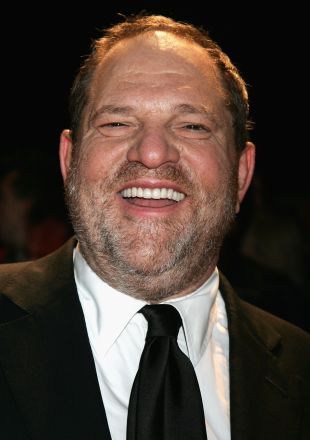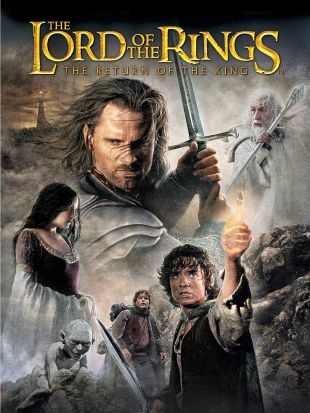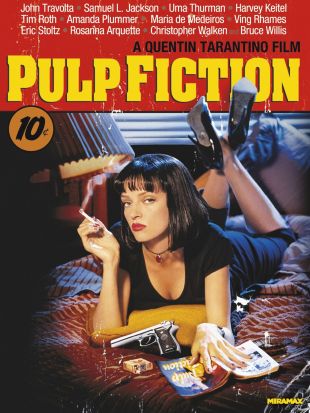Alternately praised as the savior of modern film for his role in bringing such contemporary classics as Pulp Fiction (1994) and Chicago (2002) to the screen, and decried by fans of foreign film for his poor handling of foreign titles on domestic soil (Shaolin Soccer and Hero, in particular), it's difficult to deny that controversial producer and Miramax co-founder Harvey Weinstein has -- love him or hate him -- unquestionably changed the face of modern film. A Queens native, Weinstein, along with brother Bob, founded their small production company in 1979 when they acquired the rights to the film The Secret Policeman's Ball at the Cannes Film Festival. Drawing from the funds they made distributing the film to establish their company, the Weinsteins quickly made their presence known among the Hollywood elite. The company's namesake was drawn from a combination of their mother's and father's names (Miriam and Max, respectively).
Miramax's early distribution of the Errol Morris docudrama The Thin Blue Line in 1988 grabbed headlines when the film's protagonist -- the wrongly convicted Randall Adams -- was released from prison due in no small part to the attention drawn to his plight by the film. If that film had drawn attention to the fledgling company, it was their successful acquisition of Steven Soderbergh's breakthrough indie hit sex, lies, and videotape (1989) that cemented their reputation as true innovators to watch. The Weinsteins courted controversy the following year with the releases of the X-rated art-house flicks The Cook, the Thief, His Wife and Her Lover and Tie Me Up! Tie Me Down!; subsequently, Miramax leveled a lawsuit at the MPAA that was key in the subsequent implementation of the NC-17 rating. This new rating served to distinguish adult-oriented film fare from out-and-out pornography.
As Miramax's film library grew, it gained a reputation for trusting in fledgling filmmakers of extraordinary vision. By backing such young filmmakers as Quentin Tarantino in the production of his sophomore effort Pulp Fiction, Miramax expanded its power and increased its profile in Tinseltown. Miramax was purchased by Disney for 80 million dollars in 1993, and the Weinstein brothers remained with the company to release such hits as Muriel's Wedding and Il Postino (both 1994), the latter of which garnered several Oscar nominations. Of course, not all of the films that Miramax released were hits, but the brothers' willingness to take risks and place their trust entirely in the hands of filmmakers resulted in such critically lauded art-house hits as Smoke (1995), The English Patient (1996), and Good Will Hunting (1997). By the turn of the millennium, Miramax had successfully established itself as the driving force behind some of the most challenging and creative films to come out of the studio system. The Weinsteins' relationship with such filmmakers as Tarantino, Robert Rodriguez, Gus Van Sant, Kevin Smith, and Steven Soderbergh worked wonders for their indie credit and ensured good films for years to come. When Bob Weinstein founded Miramax offshoot Dimension Films in the mid-'90s, he kept the money rolling in by releasing moderately budgeted action and horror hits such as Wes Craven's Scream (1996).
In spite of all the success Miramax has had in the realm of film production, many still questioned the ethics of Harvey Weinstein when it came to acquiring and releasing films. He has been accused of everything from strong-arm tactics to a "market sterilization" approach to purchasing immensely popular foreign films only to let them sit on the shelf unreleased domestically (apparently for little more reason than keeping them out of the hands of competetors). The fact that Miramax actively prohibited Asian film fans, in particular, from accessing such Oscar-worthy films as Zhang Yimou's period action epic Hero left many film lovers up in arms. Additionally, many fans also felt that, by "Americanizing" Asian films through editing and re-dubbing (both in terms of music and actual spoken soundtracks), Miramax seriously undermined the artistic integrity of directors' original visions, as was the case with popular Chinese funnyman Stephen Chiau's Shaolin Soccer (the most successful Hong Kong film ever made when originally released in 2001).
He continued to produce financially and artistically successful films, but he underwent a major change when in 2005 Bob and Harvey left the Disney fold, leaving the company they had founded decades earlier in order to form The Weinstein Company. That new venture stumbled initially, but they eventually recaptured box office and Oscar success with a string of memorable films including Rambo, The Reader, Inglourious Basterds, A Single Man, The Fighter, and the Best Picture Oscar winners for both 2010 and 2011 - The King's Speech and The Artist.



